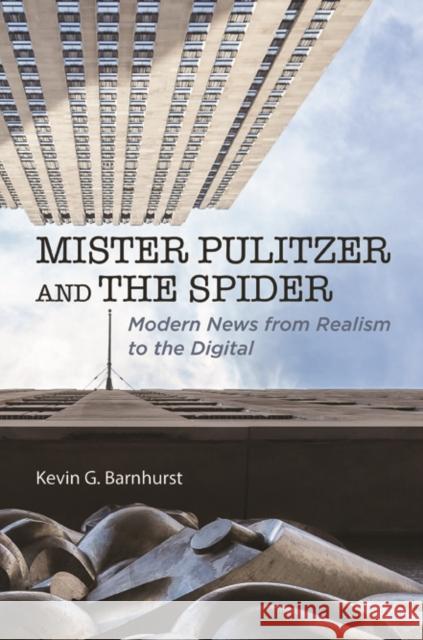Mister Pulitzer and the Spider: Modern News from Realism to the Digital » książka
Mister Pulitzer and the Spider: Modern News from Realism to the Digital
ISBN-13: 9780252040184 / Angielski / Twarda / 2016 / 320 str.
Mister Pulitzer and the Spider: Modern News from Realism to the Digital
ISBN-13: 9780252040184 / Angielski / Twarda / 2016 / 320 str.
(netto: 133,85 VAT: 5%)
Najniższa cena z 30 dni: 135,14
ok. 30 dni roboczych
Bez gwarancji dostawy przed świętami
Darmowa dostawa!
A spidery network of mobile online media has supposedly changed people, places, time, and their meanings. A prime case is the news. Digital webs seem to have trapped "legacy media," killing off newspapers and journalists' jobs. Did news businesses and careers fall prey to the digital "Spider"?
To solve the mystery, Kevin Barnhurst spent thirty years studying news going back to the realism of the 1800s. The usual suspects--technology, business competition, and the pursuit of scoops--are only partly to blame for the fate of news. The main culprit is modernism from the "Mister Pulitzer" era, which transformed news into an ideology called "journalism." News is no longer what audiences or experts imagine. Stories have grown much longer over the past century and now include fewer events, locations, and human beings. Background and context rule instead.
News producers adopted modernism to explain the world without recognizing how modernist ideas influence the knowledge they produce. When webs of networked connectivity sparked a resurgence in realist stories, legacy news stuck to big-picture analysis that can alienate audience members accustomed to digital briefs.
"











